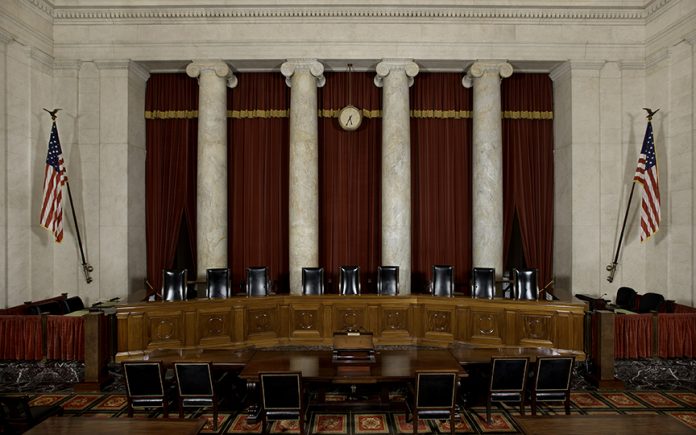The US Supreme Court will review the petitions for writs of certiorari, along with corresponding briefs for the Fort Worth property cases at their 19 February 2021 case conference in Washington.
The court’s docket reports that 489 cases will be reviewed by the justices on Friday to decide whether they will entertain the petitions. Only four of the cases, including three church property cases, have been relisted by the court from their 22 January 2021 conference for further consideration.
Three of the cases: All Saints’ Episcopal Church v. The Episcopal Diocese of Fort Worth, 20-534, The Episcopal Church v. The Episcopal Diocese of Fort Worth, 20-536, and Schulz v. Presbytery of Seattle, 20-261, have asked the court to clarify whether property disputes in hiearichally organized churches are governed by the 1872 case Watson v. Jones, or 1979’s Jones v. Wolf.
In Watson v Jones, the Supreme Court held that when adjudicating church property disputes courts should defer to the highest church authorities about who owns the property. In Jones v. Wolf, however, the Supreme Court by a 5-4 vote held that courts could adjudicate such cases by applying “neutral principles of law” to determine through the examination of property deeds, statutes, and church corporate records to whom the properties belong.
In the two Fort Worth cases, the Texas Supreme Court ruled in favor of the diocese against the national Episcopal church and their local allies, using neutral principles of law to award ownership of the properties. In Schulz, the Washington Court of Appeals deferred to the Presbyterian Church of the USA’s claim of ownership by following Watson v. Jones.
A spokesperson for the Diocese of Fort Worth, Suzanne Gill, told Anglican Ink: “Bishop Ryan Reed and the people of the Diocese are holding Friday’s conference at the United States Supreme Court in prayer. The Petition for Certiorari was filed last fall by the the original plaintiff TEC parties following the unanimous May 2020 ruling in our favor from the Texas Supreme Court.”
“After nearly 12 years, the record of our case is long, and we pray clarity and wisdom for the Justices, who have a very full slate of cases to review. Orders on the Petitions for Certiorari will be made public on Monday, Feb. 22. We will know then whether the Court dismisses TEC’s appeal, grants review (with a hearing date to be set later), or holds the matter over for its next conference session.” the spokesman said.
On its FAQ page, the SCOTUSBlog, and independent news and analysis website that covers the Supreme Court explained the significance of “relisting.”
Question: What does it mean to relist a case?
Answer: When a case is relisted, the justices do not grant or deny review, but instead will reconsider the case at their next conference. This will be reflected on the case’s electronic docket once the docket has been updated: You will see the words “DISTRIBUTED for Conference of [fill in date],” and then the next entry in the docket will usually say “DISTRIBUTED for Conference of [next conference after the previous entry, whenever that is].” It is almost impossible to know exactly what is happening when a particular case is relisted, but a few different things could be going on. One justice could be trying to pick up a fourth vote to grant review, one or more justices may want to look more closely at the case, a justice could be writing an opinion about the court’s decision to deny review, or the court could be writing an opinion to summarily reverse (that is, without briefing or oral argument on the merits) the decision below. In 2014, the court appears to have adopted a general practice of granting review only after it has relisted a case at least once; although we don’t know for sure, presumably the court uses the extra time resulting from a relist to make sure that the case is a suitable one for its review.
